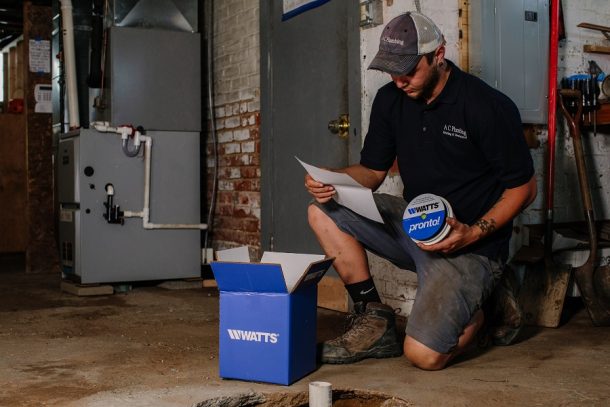Working as a tradesperson can benefit you in many ways, and there will always be people who need to use your services. There are many different trades that you can choose from depending on your interests and skills, and among these is the plumbing trade. With the right skills and training, you can enjoy a Read more
Jobs

Working as a tradesperson can benefit you in many ways, and there will always be people who need to use your services. There are many different trades that you can choose from depending on your interests and skills, and among these is the plumbing trade. With the right skills and training, you can enjoy a lucrative career in this field, and you could even set up your own plumbing business eventually.
One thing to remember is that people will always need the services of plumbers, so you can look forward to an excellent level of job security. In addition, you can earn a very good income as a plumber, and you can work toward starting your own little venture once you have the right amount of experience. On top of all this, you can benefit from having a lifelong skill and expertise that will always come in useful. If you are keen to get into the plumbing industry and gain employment in this field, you can find some tips to help in the article below.

What You Can Do
There are a few key things that you can do if you want to boost your chances of gaining employment with a company as a plumber. Some of the main ones are as follows.
Get the Training You Need
One of the vital things you need to do if you want to become a plumber is to ensure you get the necessary training. It is important that you develop the right skills and earn the necessary certifications if you want to enjoy a successful career as a plumber. You will find plenty of options when it comes to places to train, so do some research and find one that suits your needs.
Sort Out a Great Resume
Another thing you should do is to sort out a great resume once you have the required skills and certifications. With a solid resume, you can boost your chances of getting work as a plumber with a company, and you can make sure you stand out from the competition. You can access cover letter templates and resume examples online, and these can prove very helpful in terms of creating your own professional and polished resume. This can then increase the chances of you getting an interview when you apply for plumbing jobs.
Get Some Work Experience
One of the other things you can try to do is to get work experience while you are still training to become a plumber. You can contact local plumbing companies to see whether they can offer any opportunities to go along with qualified plumbers to help out even if this is on a voluntary basis. This is a great way to get some experience and it will look great on your resume.
These are a few of the steps that you can take if you want to increase your chances of getting employment with a plumbing company once you have qualified.
A new report from the Brookings Institution provides a detailed and data-driven look at careers in the water sector, finding that while there are looming shortages and a need for diversity in the workforce, water jobs are a tremendous economic opportunity for the American worker. The Water Environment Federation encourages its members to closely review Renewing Read more
A new report from the Brookings Institution provides a detailed and data-driven look at careers in the water sector, finding that while there are looming shortages and a need for diversity in the workforce, water jobs are a tremendous economic opportunity for the American worker.
The Water Environment Federation encourages its members to closely review Renewing the Water Workforce: Improving water infrastructure and creating a pipeline to opportunity, which was released June 14.
“The report reveals the sizable economic opportunity offered by water jobs, including the variety of occupations found across the country, the equitable wages paid, the lower educational barriers to entry, and the need for more diverse, young talent,” write authors Joe Kane and Adie Tomer of the Brookings Institution.
Kane and Tomer examined occupational employment data and made several key findings:
- In 2016, nearly 1.7 million workers were directly involved in designing, constructing, operating, and governing U.S. water infrastructure, spanning a variety of industries and regions.
- Water occupations not only tend to pay more on average compared to all occupations nationally, but also pay up to 50 percent more to workers at lower ends of the income scale.
- Most water workers have less formal education, including 53 percent having a high school diploma or less. Instead, they require more extensive on-the-job training and familiarity with a variety of tools and technologies.
- Water workers tend to be older and lack gender and racial diversity in certain occupations; in 2016, nearly 85 percent of them were male and two-thirds were white, pointing to a need for younger, more diverse talent.
“While the Water Environment Federation and our colleagues across the water sector have long been aware of the challenges and opportunities of our workforce, we are grateful that the Brookings Institution produced this timely, detailed report that contains fresh data,” said Eileen O’Neill, WEF Executive Director. “It is imperative on all of us to examine the findings and accelerate our efforts to ensure a sustainable and talented water workforce.”
This spring WEF nationally launched a jobs program that provides training and certification in the field of green infrastructure. The National Green Infrastructure Certification Program (NGICP) establishes national requirements for working on green infrastructure projects, promotes a skilled green workforce, streamlines the process of connecting qualified talent to in-demand jobs, and supports community-based job creation in U.S. cities. NGICP is working with local organizations to expand the program nationally, including partnering with community colleges and STEM high schools to incorporate the curriculum into educational institutions and member associations to engage existing infrastructure workers. NGICP is also partnering with workforce development organizations to engage many of the chronically un- and under-employed in urban areas across the country.
WEF also maintains the Job Bank, continually updated site with new employment listings for careers in wastewater, including water and wastewater management, operations, consulting engineering, and other career paths in water quality. Visit the Job Bank.
To read the Brookings report visit: https://brook.gs/2HCBFdj
